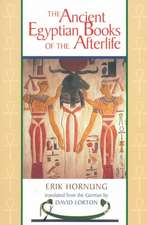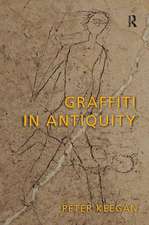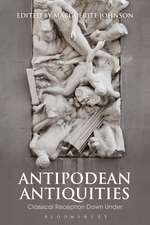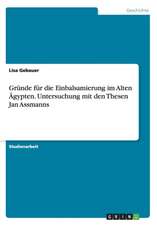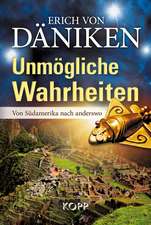Rome: Empire of the Eagles, 753 BC – AD 476
Autor Neil Faulkneren Limba Engleză Paperback – 5 noi 2009
Within the empire the landowning elite creamed off the wealth of the countryside to pay taxes to the state and fund the towns and villas where they lived. The masses of people – slaves, serfs and poor peasants – were victims of a grand exploitation that made the empire possible. This system, riddled with tension and latent conflict, contained the seeds of its own eventual collapse.
Preț: 434.63 lei
Nou
Puncte Express: 652
Preț estimativ în valută:
83.18€ • 86.52$ • 68.67£
83.18€ • 86.52$ • 68.67£
Carte tipărită la comandă
Livrare economică 14-28 aprilie
Preluare comenzi: 021 569.72.76
Specificații
ISBN-13: 9781408229200
ISBN-10: 140822920X
Pagini: 378
Ilustrații: Illustrations
Dimensiuni: 156 x 234 x 25 mm
Greutate: 0.42 kg
Ediția:1
Editura: Taylor & Francis
Colecția Routledge
Locul publicării:Oxford, United Kingdom
ISBN-10: 140822920X
Pagini: 378
Ilustrații: Illustrations
Dimensiuni: 156 x 234 x 25 mm
Greutate: 0.42 kg
Ediția:1
Editura: Taylor & Francis
Colecția Routledge
Locul publicării:Oxford, United Kingdom
Public țintă
General and UndergraduateCuprins
List of maps and plates Acknowledgements Introduction Note on ancient monetary values Maps Prologue 1. The making of an imperial city-state, c 750-367 BC 2. The rise of a superpower, 343-146 BC 3. The Roman revolution, 133-30 BC 4. The Pax Romana, 30 BC-AD161 5. The decline and fall of the Western Roman Empire Timeline References Bibliographical notes Index and glossary
Descriere
The Roman Empire is widely admired as a model of civilisation. In this compelling new study Neil Faulkner argues that in fact, it was nothing more than a ruthless system of robbery and violence. War was used to enrich the state, the imperial ruling classes and favoured client groups. In the process millions of people were killed or enslaved. Within the empire the landowning elite creamed off the wealth of the countryside to pay taxes to the state and fund the towns and villas where they lived. The masses of people slaves, serfs and poor peasants were victims of a grand exploitation that made the empire possible. This system, riddled with tension and latent conflict, contained the seeds of its own eventual collapse.



